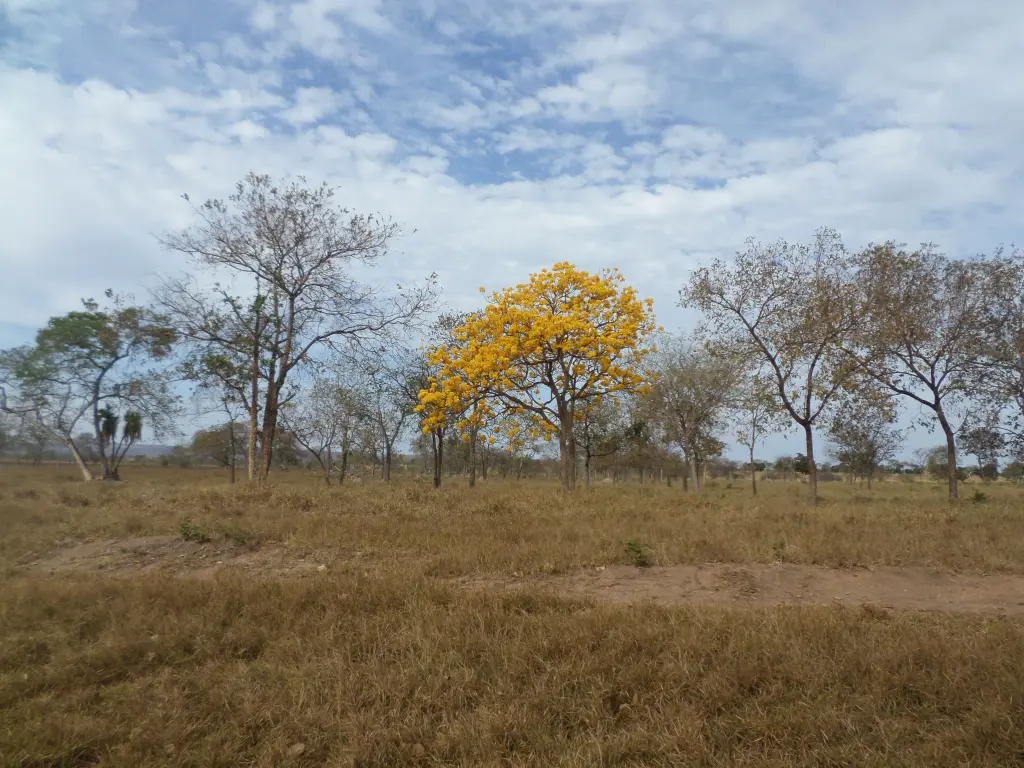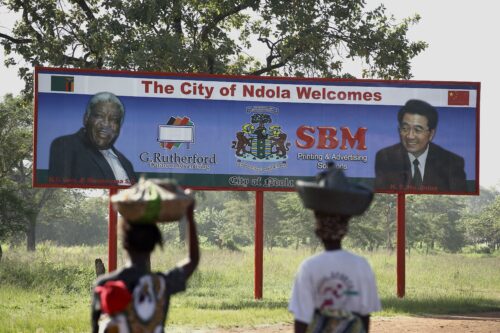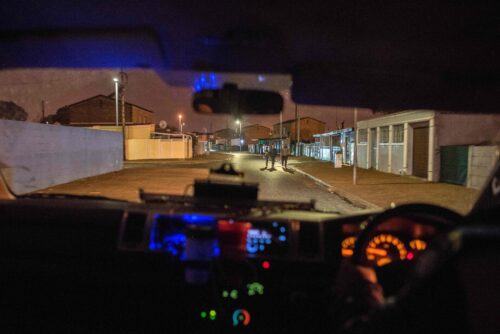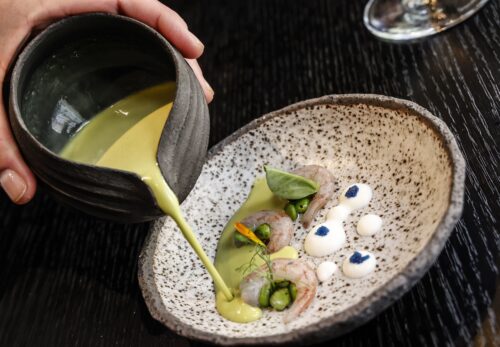Pequi Winds

“Pequi Winds” is part of the collection Poets Resist, Refuse, and Find a Way Through. Read the introduction to the collection here.
In the vast territory of the Brazilian Cerrado, rural women transfigure the pain of environmental destruction into beauty. Large-scale plantations, whose expansion is driven by the unbridled growth of agribusiness, threaten the region’s immense biodiversity that people and nonhuman animals depend on for their livelihoods. These women’s existence, stories, and daily struggles aim to transform harmful impacts through narrative and traditional knowledge, creating worlds that can be inhabited amid the devastation perpetrated in the name of “progress.”
My poem, “Pequi Winds,” emerged from my ethnographic fieldwork with rural women in northwestern Minas Gerais, located in central Brazil. In my doctoral thesis based on this research, I attend to women’s day-to-day relations and highlight the “contrasts between the poverty of development and the riqueza (wealth) in the cerrado.” Note that the word “cerrado” appears with different uses and meanings. Regarding the biome, I capitalize Cerrado. When I refer to the place that forms the basis of people’s everyday lives—the lands these women know and intimately engage with—I use lowercase and italicize. And yet, cerradão refers to preserved forests that have not been damaged by agribusiness. The women who live there also often use it to denote the past of the cerrado, or the first, “in de primero.”
In my poem, the verses cross times and territories. They weave images that move between the coast and the backlands, just like the path of colonization in Brazilian lands. Throughout the poem, we can read and glimpse the ancestral resistance of women, their perseverance and that of their descendants, as well as the ambivalences and camouflages of existence in the diaspora.
Pequi activates a sense of time, space, and materiality. It refers to a type of fruit that sprouts at a particular time of the year. Its trees grow exclusively in cerrado lands. Yet the smell spreads and touches people through cooking, and on the wind.
Pequi Winds
I
memories of the cerrado
remind of smells coffee stewed cassava saffron
you can almost feel in your fingers,
the lines
the creaking of the fibers,
the spinning
after the cotton is harvested, carded,
and wrapped
remind of learning alongside the Bees
older women handling
slow and soundless
to not excite them,
the Bees
remind us of the heavy honey frames
shaken one by one
to see whether they drip on the ground:
the honey still green, they say, when it’s ripe
doesn’t drip, no!
remind us that silence is also
language
and shared fight
how agrarian reform
teaches us that occupied land is not an invasion:
pay attention, it is a diverse crop—
corn, potatoes, pumpkin, okra, melon—
not a monoculture plantation
there is no point in
coming by tractor
to tear houses
to the ground
and against it
brave women
insist
on life in the cerradão
II
their voiceless
banal charms
smile at the day
although they
do not lose sight of the
cuts
opened deep inside
sharp carvings,
indignities offenses
abuses,
the dust of the land cracked, torn out
deafening deep roots
the water the bones
to cover
forged escapes, the weight of sharp feelings
is always too much—
make an escaped life
excessive
with exception that exceeds the
desire to envision in the shadow of time
womb
the darkness,
the dry smell of premature
departure
acting,
toward watering the seedlings
the same pale mother violet in the middle of
the wasp nest,
has no bordered meaning to form ground
in the thread of time, robust
to walk alongside
step by step over
jundús, the limit of things
[1]
[1]
Jundú refers to a green vegetation that grows on shorelines. These plants help prevent erosion from the advance of the sea. Guaruçá, a type of crab, live in this diverse ecosystem.
to live up to the name
grain by grain
like a guaruçá claw, in the smell of everything that is alive
lost parts, storm surges,
retreats
the vastness of burnt colors, roars
[2]
[2]
In Portuguese, the term ruge can refer to a sound, such as that made by jaguars, or the color orange. In translating the term to “roar” in English, I evoke the ambiguity of sensations in the original term.
strange
land
faces surrounded plants
fulfilthed of world
[3]
[3]
My portmanteau “fulfilthed” combines “fulfilled” and “filth.” With this term, I am indicating the devastating effects of humanity on the world (in Portuguese as imundações, human impacts on the world, and echoing the sound of the word inundações, or floods).
odorless herbicides amid
the superb fragrant greens wishing for water
III
—take, place this pillow toward your head
orange, the heat pierces the
striped greens,
arrives calmly
runs over the ocher skin
welcomes the face,
the taste of black clay,
earthy smell of mango
—Rosa,
what color gives the mango tree?
pick the brownish bark
—red!
the old woman insists
with the machete leaves
a scar
on the cashew tree
amber sound, the color of the pequi winds
touch the feet
wake up the time
perennial course
the green clay lasts
on the finger,
on the taste,
on the neck,
on the face the color gives shade,
sound of memories embodied in
the hair

























